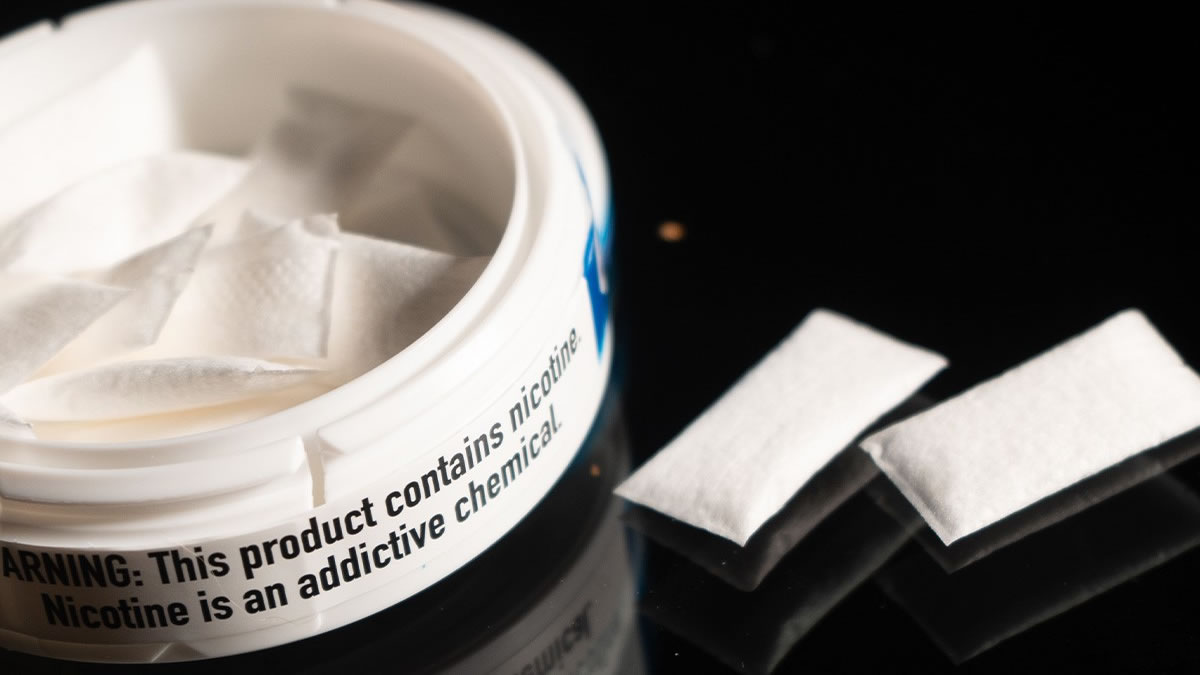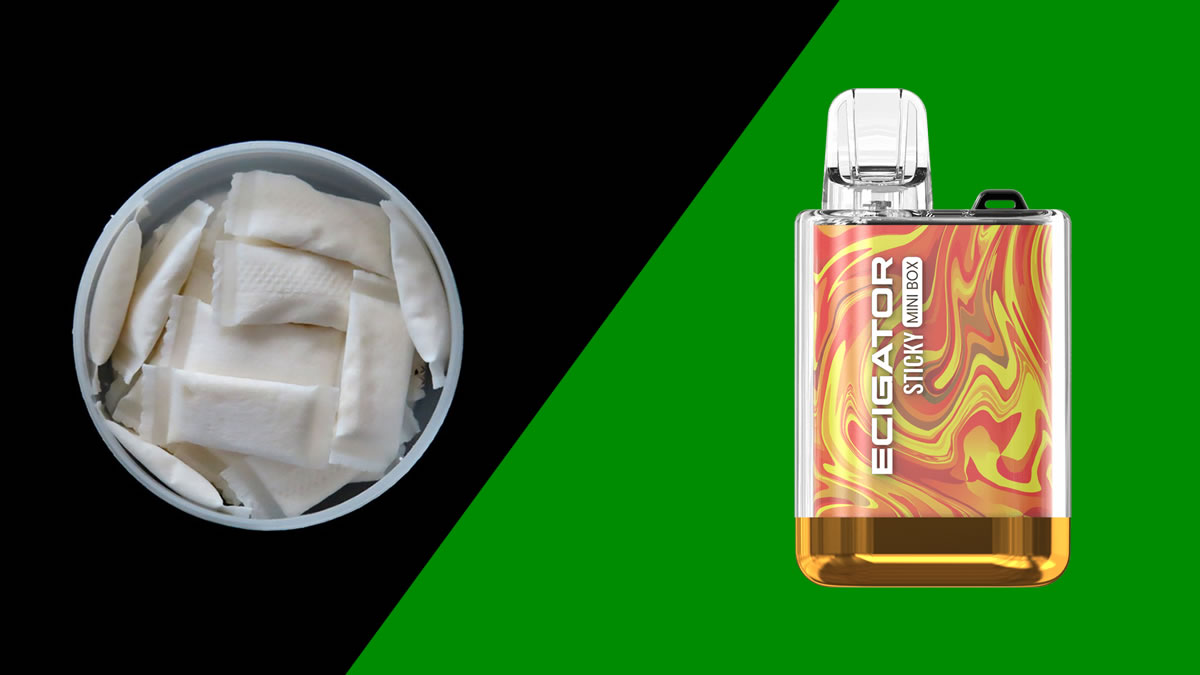As smoking rates decline and vaping faces growing restrictions, many nicotine users are turning to snus and nicotine pouches. These oral tobacco and nicotine products are rapidly gaining popularity as a perceived safer alternative. But what exactly are they, and are snus and nicotine pouches less harmful than traditional cigarettes or e-cigarettes?
What is Snus?
Snus originated in Sweden and consists of small tobacco pouches placed under the upper lip for around 30 minutes at a time. The pouches contain powdered tobacco along with flavoring and nicotine.
When used, the nicotine is absorbed through the lining of the mouth into the bloodstream rather than being inhaled into the lungs as with smoking. Traditional Swedish snus does contain tobacco.

Nicotine Pouches – A Tobacco-Free Alternative
Nicotine pouches have also grown in popularity in recent years. They function similarly to snus, but contain synthetic nicotine rather than tobacco.
With nicotine pouches, there is no tobacco content whatsoever. The pouches consist of nicotine, flavors, and food-grade ingredients. Their rapid growth shows many nicotine users prefer the tobacco-free alternative.

Why Are Snus and Nicotine Pouches Increasingly Popular?
While cigarettes were once the dominant nicotine product, their use has dropped sharply in recent decades. Seeking an alternative, many smokers switched to vaping e-cigarettes.
However, growing vaping restrictions and health concerns have driven demand for alternatives like snus and nicotine pouches that don’t involve inhaling substances into the lungs. Their discreet use and lack of smoke or vapor make them convenient options.
Experts forecast the global market for snus and nicotine pouches could reach $33 billion by 2026, more than doubling current sales.
Are Snus and Nicotine Pouches Addictive?
Yes, both snus and nicotine pouches contain nicotine which is highly addictive. However, some argue the slower nicotine absorption from oral use makes them less addictive than inhaled products like cigarettes and vaping.
While addictive, nicotine does not directly cause serious health issues. It’s the other chemicals created from burning tobacco in cigarettes that pose the biggest risks.

How Harmful Are Snus and Nicotine Pouches?
Compared to traditional cigarettes, snus and nicotine pouches are generally considered far less harmful when used appropriately.
However, health risks still exist. Potential concerns include:
- Mouth irritation or lesions from frequent use
- Tooth decay from sugar in some products
- Increased heart rate and blood pressure
- Higher risk of pancreatic cancer for heavy users
More research is still needed, but current evidence suggests snus and nicotine pouches pose minimal risks when used in moderation by adult smokers looking to quit cigarettes.
Are Snus and Nicotine Pouches Safer Than Cigarettes?
Most studies show snus and nicotine pouches are significantly safer than smoking cigarettes:

- Snus is estimated to be around 95% less harmful than smoking.
- It eliminates risks of lung cancer, COPD, and other smoking-related diseases.
- Cardiovascular and oral cancer risks are 50% lower compared to smoking.
By avoiding inhaling smoke into the lungs, snus and nicotine pouches avoid many negative health impacts of cigarettes.
How Do Snus and Nicotine Pouches Compare to Vaping?
Evidence on the relative harms of vaping versus snus is limited. However, a few key points stand out:

- Both are safer than smoking, but long-term data on vaping is limited.
- Vaping risks stem from inhaling aerosols, flavorings, and metals.
- Snus/nicotine pouches limit risks by avoiding inhalation.
- More research is needed for a definitive comparison.
For smokers, either option is likely safer than continuing cigarettes. But for non-smokers, nicotine pouches may be preferable to vaping.
Can Snus or Nicotine Pouches Help You Quit Smoking?
For smokers struggling to quit, snus and nicotine pouches can be an effective harm reduction tool:
- They provide nicotine without the risks of inhaling smoke.
- The lower nicotine absorption can ease the transition away from cigarettes.
- Pouches give an oral fixation similar to smoking.
- Snus is widely credited for Sweden’s low smoking rates.
However, other nicotine replacements like gum, patches, lozenges, and inhalers also have a proven track record for smoking cessation. Consulting a doctor is recommended to explore all options.
Potential Downsides of Switching to Snus or Nicotine Pouches
While generally less harmful than smoking, some potential cons of switching to snus or nicotine pouches include:
- Perpetuates nicotine addiction and oral fixation
- May lead to dual use with cigarettes rather than quitting
- Lacks rigorous long-term scientific studies on health impacts
- Banned in certain countries due to tobacco content (snus)
- Youth could initiate nicotine use through pouches
Conclusion
The rise of snus and nicotine pouches reflects demand for harm reducing alternatives as smoking declines and vaping faces uncertainty. While risks exist, both appear significantly safer than cigarette smoking when used properly by adult smokers. However, those concerned should consult a doctor on the best nicotine cessation options for their needs. Additional research will continue clarifying the long-term public health impacts.
- UK Announces Mandatory Vape Tax and Duty Stamps from 2027 - February 10, 2026
- Sri Lanka Travel 2026: Total Ban on Cigarettes & Vapes - February 5, 2026
- NY Tax Proposal: Hochul Targets ZYN with 75% Levy - January 29, 2026


